Are You Helping the Local Economy When Traveling?
During my first solo trip to Egypt, over 10 years ago, I took a bus trip to Cairo. After we saw everything we were meant to see, the bus took us to Khan Al-Khalili market, the oldest open-air souk in the Middle East.
I honestly cannot remember whether I bought something or not, but I do remember a young couple who wanted to buy an Egyptian bust having been chased almost to the bus by a vendor, who eventually decided to lower the price to what they wanted to pay.
When the couple, very satisfied with the purchase, showed it to the driver he smiled while flipping it upside down and returning it to the couple. There it was: ‘Made in China’!
They wanted an Egyptian souvenir that wasn’t actually made in Egypt at all. While the market was authentic and naturally not owned by the Chinese in any way, it made me wonder what’s actually made in Egypt, or any country, after all.
Years later, on my second trip to Egypt, I purchased a handmade dress from a local factory. I saw it being finished so I could actually vouch for its authenticity. Can I say the same about a dress I bought from a Moroccan market in Marrakesh? I wouldn’t be so sure.
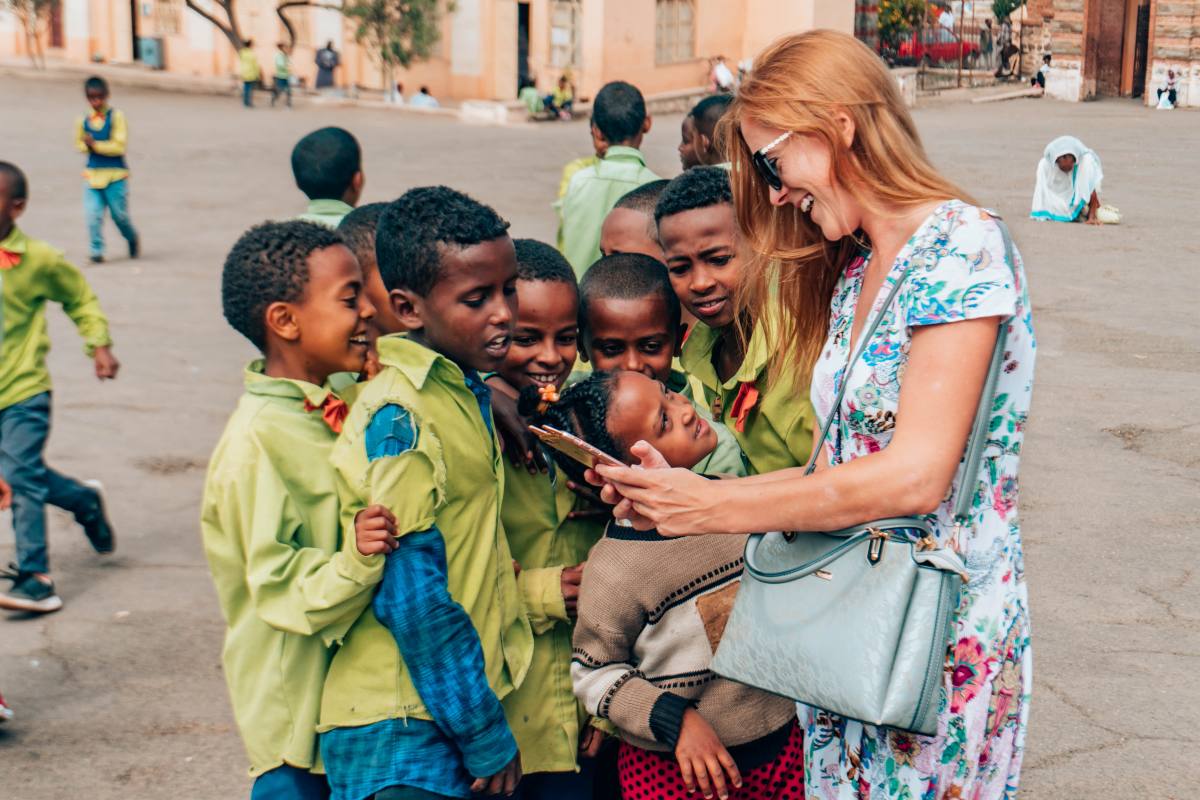
What’s Zero-Dollar Tourism?
While we know these days most merchandise comes from China, the issue of things and businesses not owned locally is more complex than that. Have you heard of zero-dollar tourism?
This is how it works: back in their home countries, tourists are offered discounted package tours or all-inclusive holidays to a foreign, attractive destination. While they’re in another country they eat and sleep at foreign-owned accommodations and are taken to foreign-owned shops.
It happens commonly with Chinese and Korean tourists, especially in Bali. Chinese groups are taken to Chinese-owned shops run by Thai proxies that make up for a cheap price of the entire holiday package. While no one is ever forced to do any shopping, let’s be real: most tourist love to shop on vacation and the vast majority did.
As a result, almost no money actually stays in Bali and naturally, no Chinese tourists actually know about it. When 70% of tourists come from China and their payments for travel packages are made through China so the money doesn’t even reach Indonesia, how much money is Bali actually making…?
*
It’s not only about money though. There are safety risks involved in zero-dollar tourism. If the tour operator doesn’t provide safe transportation or security and an accident occurs the destination is going to be blamed for the lack of safety, and therefore, its reputation will be at stake.
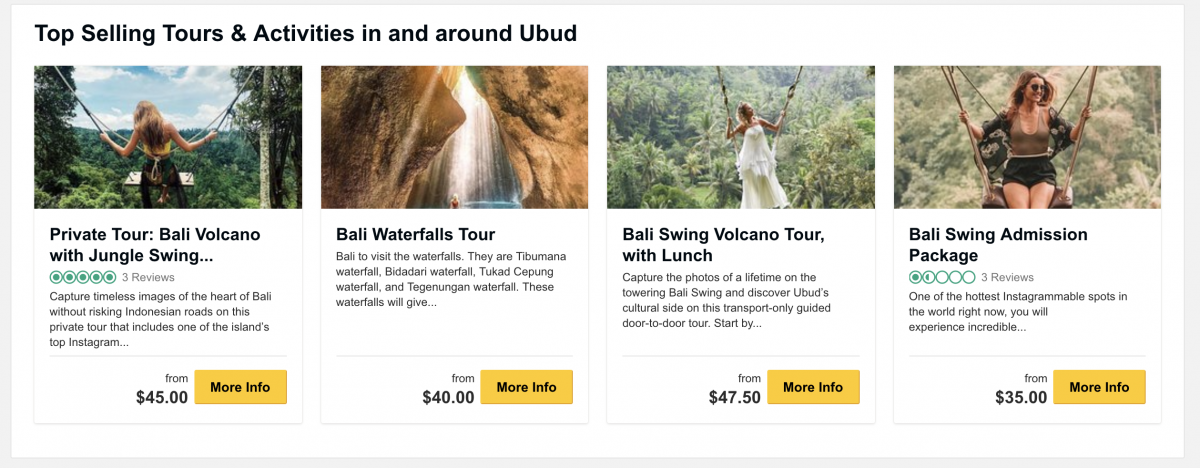
Are You Actually Helping Locals by Spending Money in a Foreign Country?
One might think that as I described the situation with Asian groups, these situations wouldn’t concern you unless you’re Asian. You spend your money on travel so it should benefit the places you visit. You spend money locally by shopping and eating out, so that money stays locals’ hands, doesn’t it?
Not quite.
Many Instagrammers, in particular, use the idea that tourism helps just to ease their conscience while they parade in a designer dresses in front of poor locals. Because it’s a photoshoot that will bring more visitors to this place, right? Let’s take Cuba as an example.
Girls flock to Cuba for beautiful photos with vintage cars, beaches and colorful streets. It’s undeniably photogenic. However, since tourism in Cuba has expanded many Western hotels popped up in Havana, such as Kempinski.
While I have nothing against Kempinski, they have lovely hotels, one should keep in mind that going to Havana and staying there won’t help locals in a significant way. If at all, as $1 (at the most) in every $5 actually reaches regular people.
As I explained in another post on understanding the reality of traveling to Cuba, the issue with big hotel chains in the Cuban market is that there will be no more shortage of tourist housing, and therefore need for casas particulares. While Cubans are naturally hired to work at these hotels, they won’t make more than 15 or 20 CUC a month and get standard food ration cards.
It isn’t enough money to feed the family, especially considering that one night at casa particular costs visitors 20-35 CUC. After the governmental fee reduction (which is sadly compulsory for locals), they can still make more money on a few nights than for a month’s work at a new hotel.
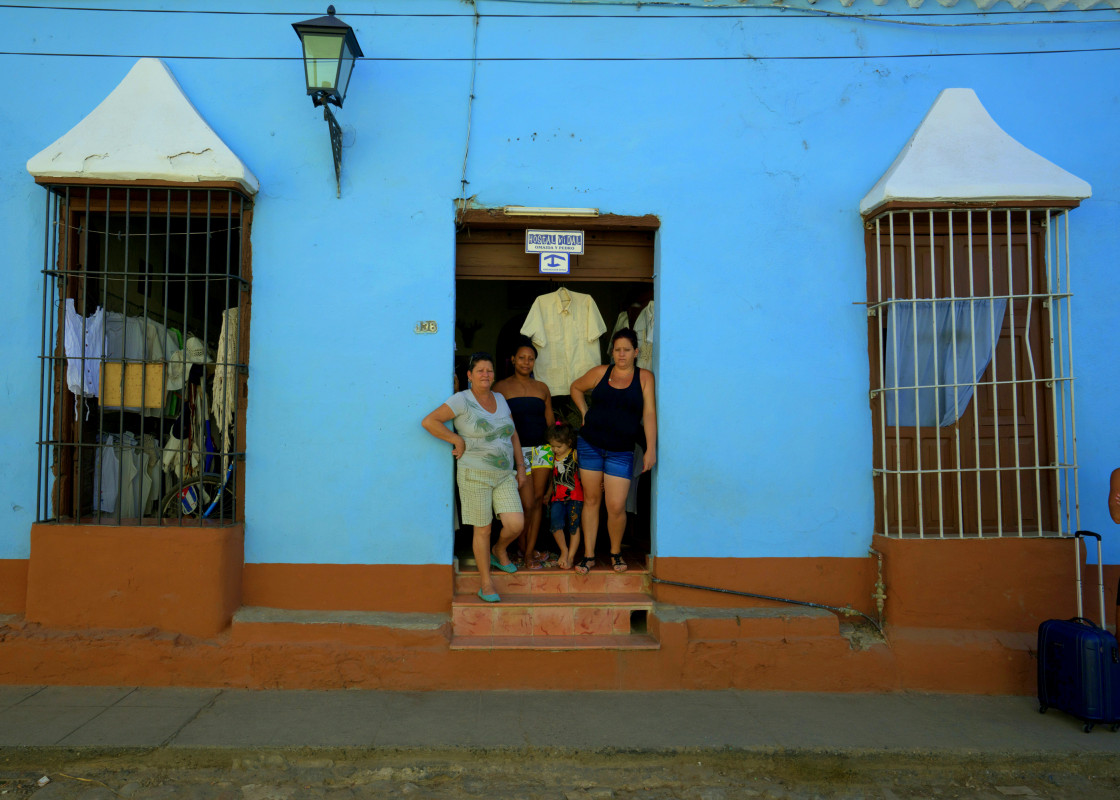
While Kempinski has to pay Cuban taxes to the government and the government has to pay ridiculously low salaries to hotel workers, most of the money tourists spend will not stay in Cuba. Unless naturally, you tip a lot, but we’re talking about significant tipping, as Cuba isn’t as cheap as some might think.
How Much Money Is Benefiting the Local Economy?
While Cuba might come as an extreme example due to its governmental regulations, let’s take a look at more obvious destinations. According to stats provided by United Nations Environmental Programme (UNEP):
“For every US$100 spent on a touring holiday by a tourist, only around US$5 actually stays in a developing-country destination’s economy.”
Can you actually believe it? Only $5 stays in the country and boosts its economy. Strictly speaking your expensive holidays in The Gambia or Goa isn’t benefiting the place in any way. Due to foreign-owned operations bypassing the local financial operations almost entirely causing a Tourist Leakage.
In Thailand, according to Sustainable Living, about 70% of tourist profit leaves the country to rich foreign investors.
In Mexico, according to Tourism Concern, about 80% of traveler expenditure at all-inclusive resorts go to international investors.
In many Caribbean islands, as the UN admits, most islands’ leakage was between 40 to 56%.
What About Jobs in Tourism for Locals?
One can argue that while the money doesn’t help the local economy, tourism provides employment for locals. The presence of tourists in areas with limited resources can also help the infrastructure.
It can indeed be a good thing, as tourism accounts for one in 12 jobs worldwide. Could it be deceiving? Absolutely! Tourism can also exploit and harm locals in various ways.
The availability of jobs in the tourism industry can further aggravate inequalities within a country. It can cause the locals to gravitate towards jobs that require less education and training, such as waiters and taxi drivers.
Simply because they can easily find employment and the possibility of getting tipped by wealthy (to them) visitors is way too tempting than studying or training for a more qualified position that’s also needed in the community like doctors, teachers, or anything really.
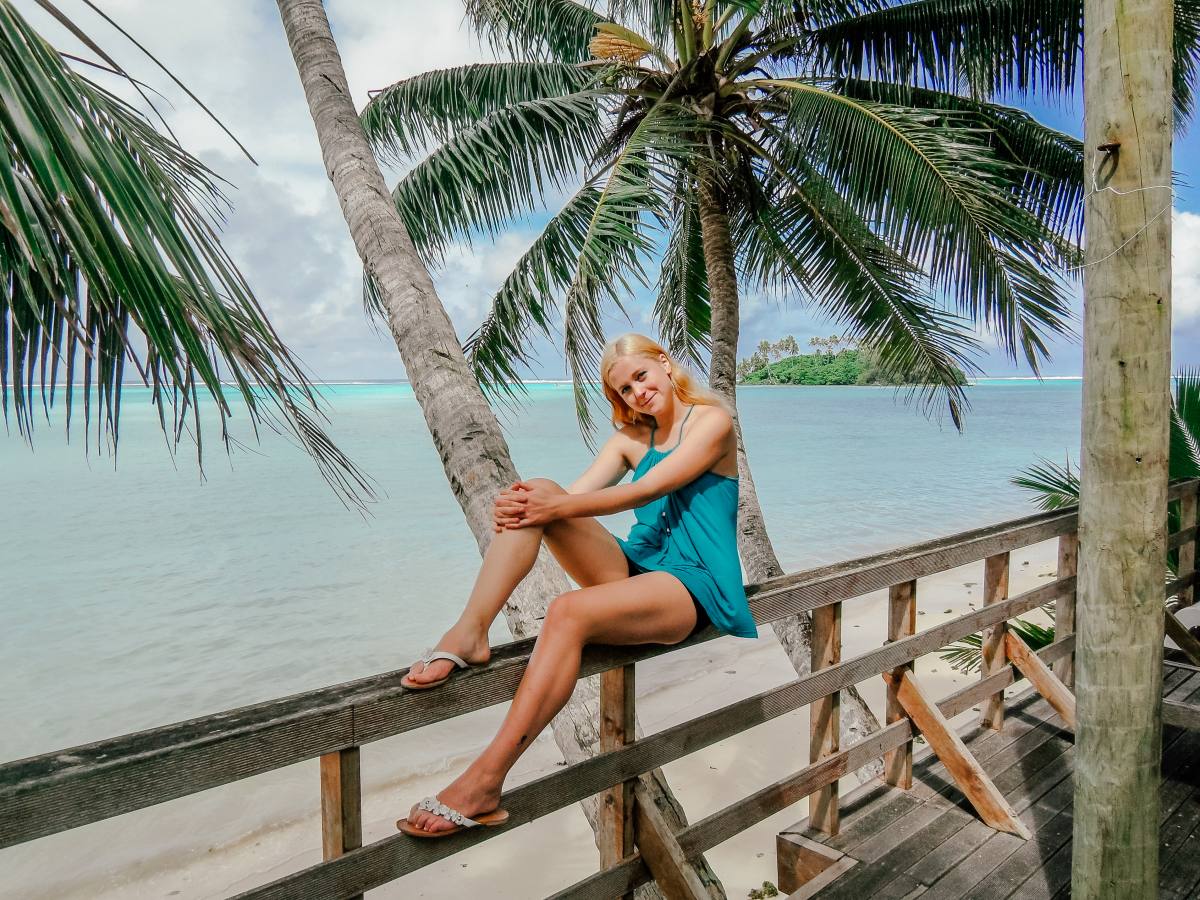
Can You Be Sure if You Hand to Hand Cash to Locals?
Even if you pay directly to a local operator or guide, you cannot be absolutely certain where your money goes and who is taking a cut. Let me tell you a personal story here that I’ve never shared before.
Some years ago I visited northern Vietnam. I was dying to see Vietnam, and while I had an awful experience in Hanoi, the part of the trip I was most looking for was Sapa. Sapa is a popular trekking base, overlooking the terraced rice fields of the Muong Hoa Valley. If you look up places of it online you’ll see that’s undeniably stunning.
Having traveled on a little student budget and less travel experience I have now, but still more than an average tourist, I decided to arrange my trek through my local hotel in Hanoi. The hotel was basically going to arrange bus tickets, a guide that would meet me in Sapa and a homestay for the night of my trek. I happily paid about $140 if I remember correctly.
Things were going smoothly and my guide, a 20-year-old girl was lovely, until halfway through the trek when she brought me, along with some other travelers, to a barracks that was going to be our base for the night and announced that she was going home now but will be back to cook us dinner.
Disappointed as homestay it was not – rather a barracks built for tourists, the girl and an elder man made our spring rolls and left saying they’d pick us up in the morning. As my expectations haven’t been met on the way back I started chatting with the girl about the whole situation, just to realize that this trip, as I thought arranged locally, was part of a bigger scam and I’m not even talking about scamming the tourists.
How come?
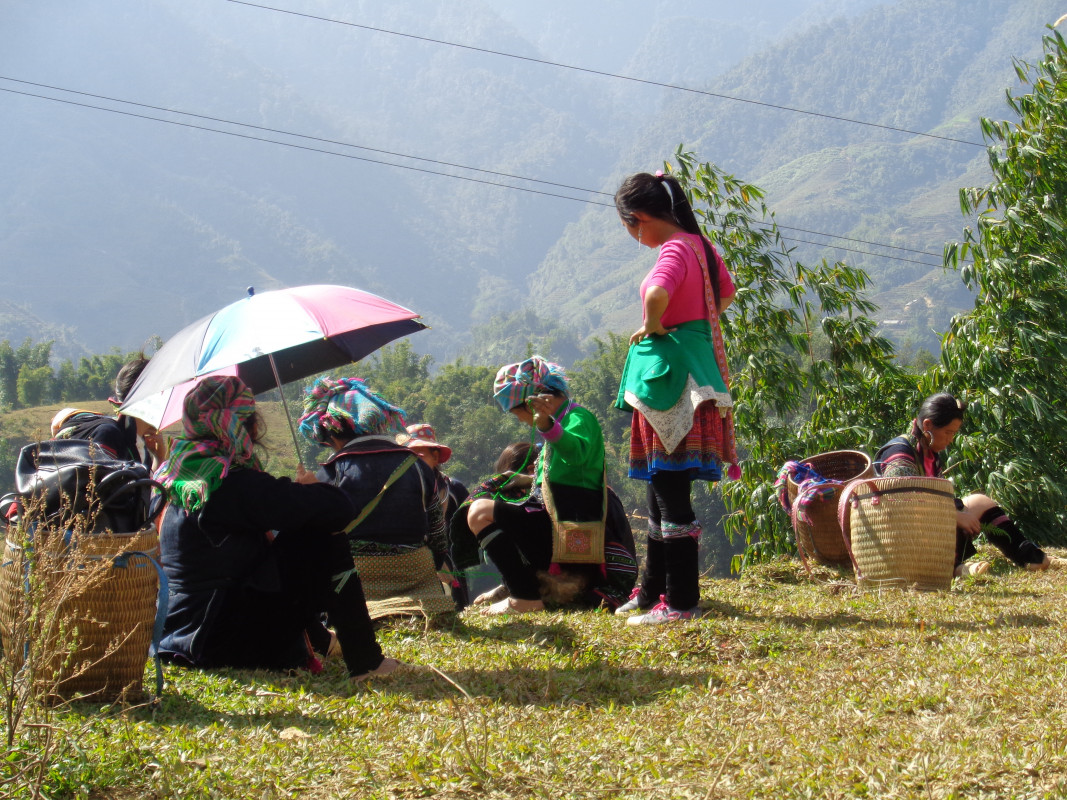
If you’ve been to Sapa or are interested in Vietnamese history, you’ll know that in inhabitants of this region aren’t actually Vietnamese. They’re Hmong, an ethnic group that has not had a country of their own. They live mainly in Southern China, Vietnam and Laos.
During the Vietnam War, the Hmong in Laos aided and partnered with American forces to fight Southeast Asian Communists in what is now known as the “Secret War.”
As I later found out their religious rights are constantly getting abused by the Vietnamese government and as they can’t leave Vietnam many ‘big city’ people are taking advantage of them.
As we got to know each other a bit better, she shared with me that she is walking about 3 of these 2-day treks per week, always also working as a porter carrying tourists’ crap.
She gets a call from Hanoi that she has to pick someone up from the bus or train station and how many people are going to be in the group. For the entire trek for 2 days she gets a compensation of $2.
‘Per person per day, right?’ I asked.
‘No, for the trek for the group. Plus $4 for 2 lunches and 1 dinner per person to budget it in’.
Regardless of the number of people in the group (it was about 10 of us) she makes $2 for 2 days of guiding. It made me so mad. Out of the $140 I paid for the trip, a bus itself was about $45 and assuming that my food cost $4, where did the rest of this money go and why it’s not with this girl?!
Almost $100 basically stayed with a dude in Hanoi. Instead of paying the local girl who worked so hard, my money went to the middle man, a local dude in Hanoi who’s done nothing more than make a phone call to her. While I could easily go back home and eventually make this money back, it wasn’t the same for the nice Hmong girl.
She explained that she has no choice but to work for them because she needs some money, but that it happens a lot that Hanoi people are taking advantage of the villagers. It sucks.
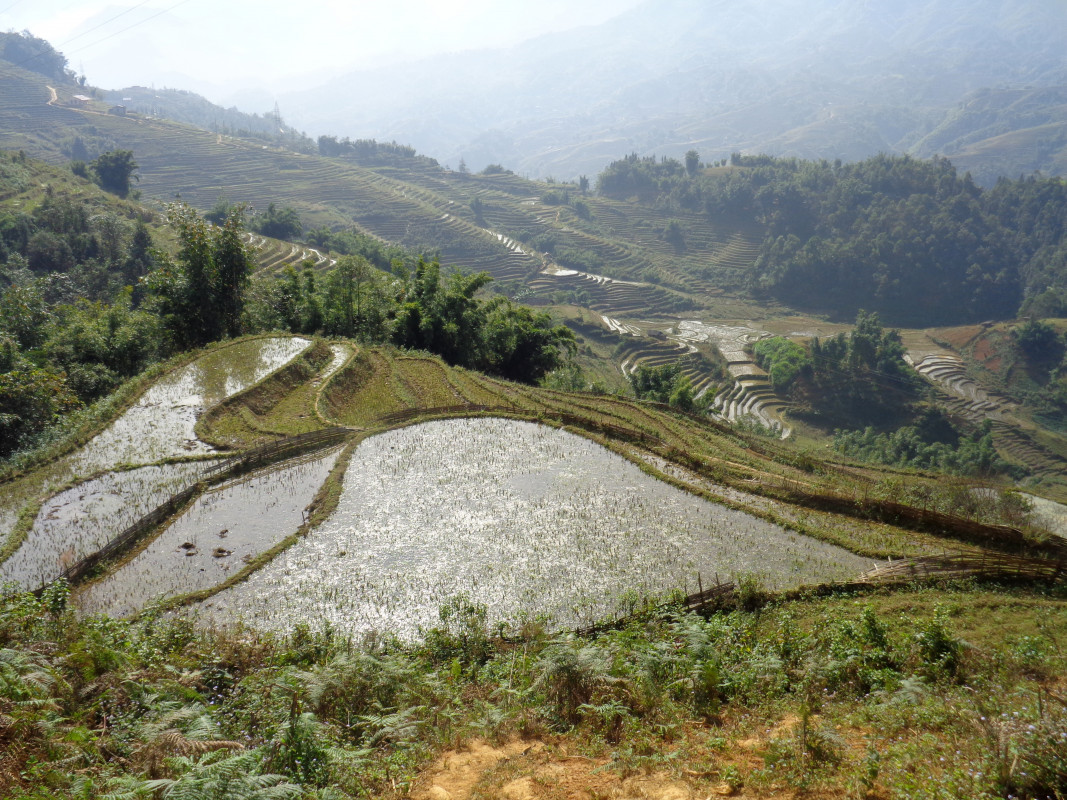
***
These situations happen a lot in Africa as well.
For instance, when travelers can take part in Maasai village tours in Kenya. Nearly all of the tour fees once went to outside guides instead of the villagers. While you can visit Maasai and help them by doing so, you need to make sure who’s taking a cut here and how much.
And yet, as I explained before many tourists complain that Maasai are trying to sell you things on top of the fees the tourists have already paid. If they’re not getting much money from the tourists’ fees they need to push selling things. Otherwise, they’d not make any money they need to survive these days.
Always make sure that you’re arranging your experiences through a thoughtful and reliable operator.
What Can You Do to Improve the Situation and Travel Responsibly?
A lot of people like luxury resorts and comfort when they’re on holiday. I get it. Especially since having my kids I see and understand more why people prefer to book a resort package, as it’s simply convenient.
Stay Locally
However, we could dedicate half of our stay to staying locally instead of filling the pockets of big-name resorts. Instead of all-inclusive you could go out and visit a local restaurant.
That, on top of checking whether the institution we’re paying money to is actually committed to the local economy. For example, there’s a reason why many smart celebrities and institutions call for boycotting certain luxury hotels – it has to do with ownership.
Don’t Demand Things from Home
A lot of the money that tourists pay is being reinvested in making tourists feel ‘at home’, which actually defeats the purpose of traveling in my opinion, but for many wealthy travelers is a must. Tourists would demand peanut butter in Kenya or Cheerios in India, as since no one local would use them there, all of this has to be imported – for tourists.
Instead of forcing the companies to import things you can get at home, you could adapt to local habits.
Don’t Give Out Candies to Children
While giving out free things to locals can be as direct help as it gets, it isn’t always the solution. Ever wondered why in some countries children and even adults keep begging, while in others they don’t?
Once the place becomes more popular it becomes a part of a cycle of behavior that leads rapidly to dependency on tourists’ gifts and money.
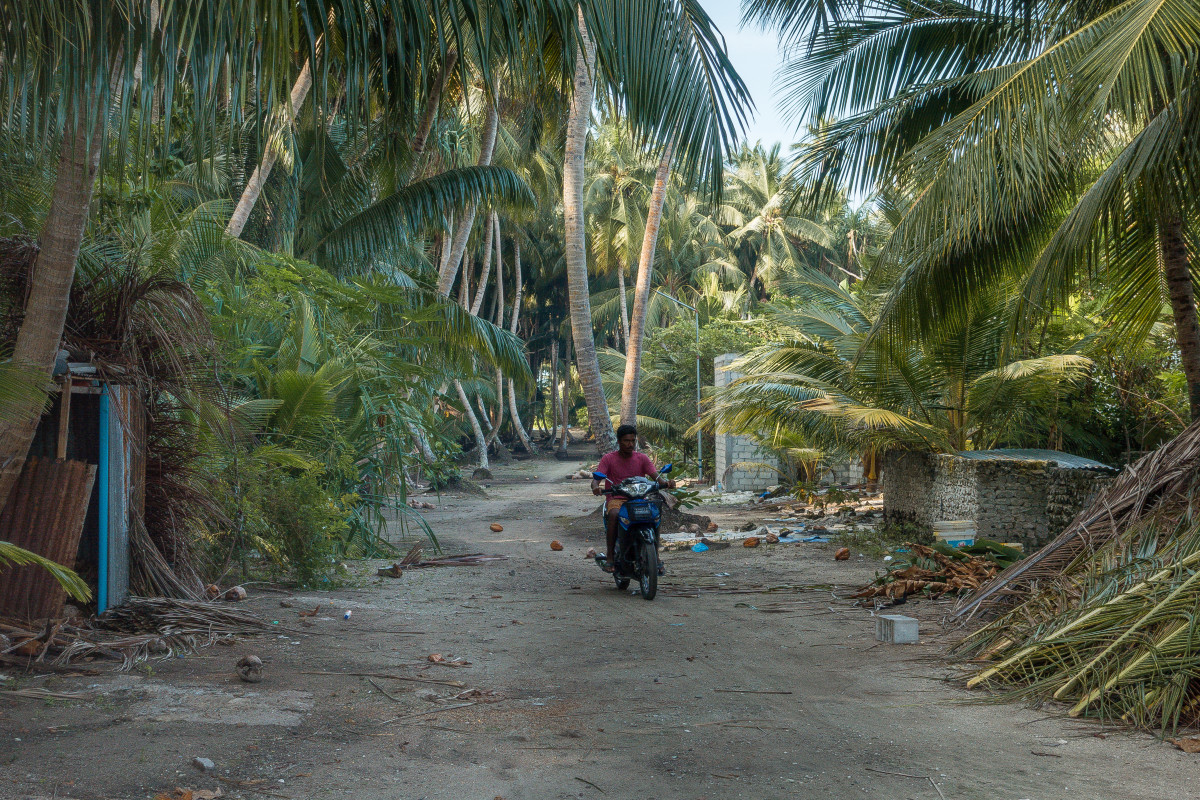
While it’s not always possible to follow your money, let’s stop pretending our travels to developing countries automatically help the poor. Let’s also not jump to conclusion that tourism is always good for a place, as it might not be.
Not just in an economic sense, but also environmentally. Way too many operators are oriented towards money-making and with climate change threatening the area’s potential for tourism, things must be environmentally sustainable.
When too many tourists flock to a place like Maya Bay in Thailand it causes the place to die and forces the closure, but that’s a topic for another time…
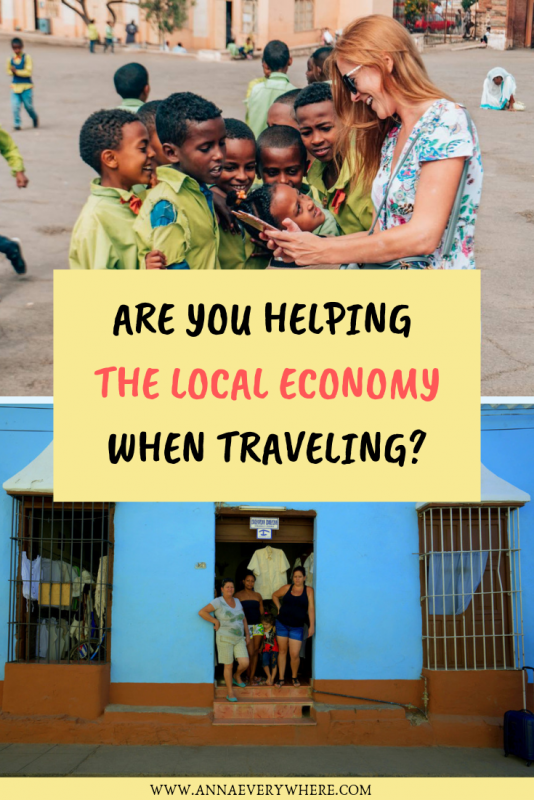

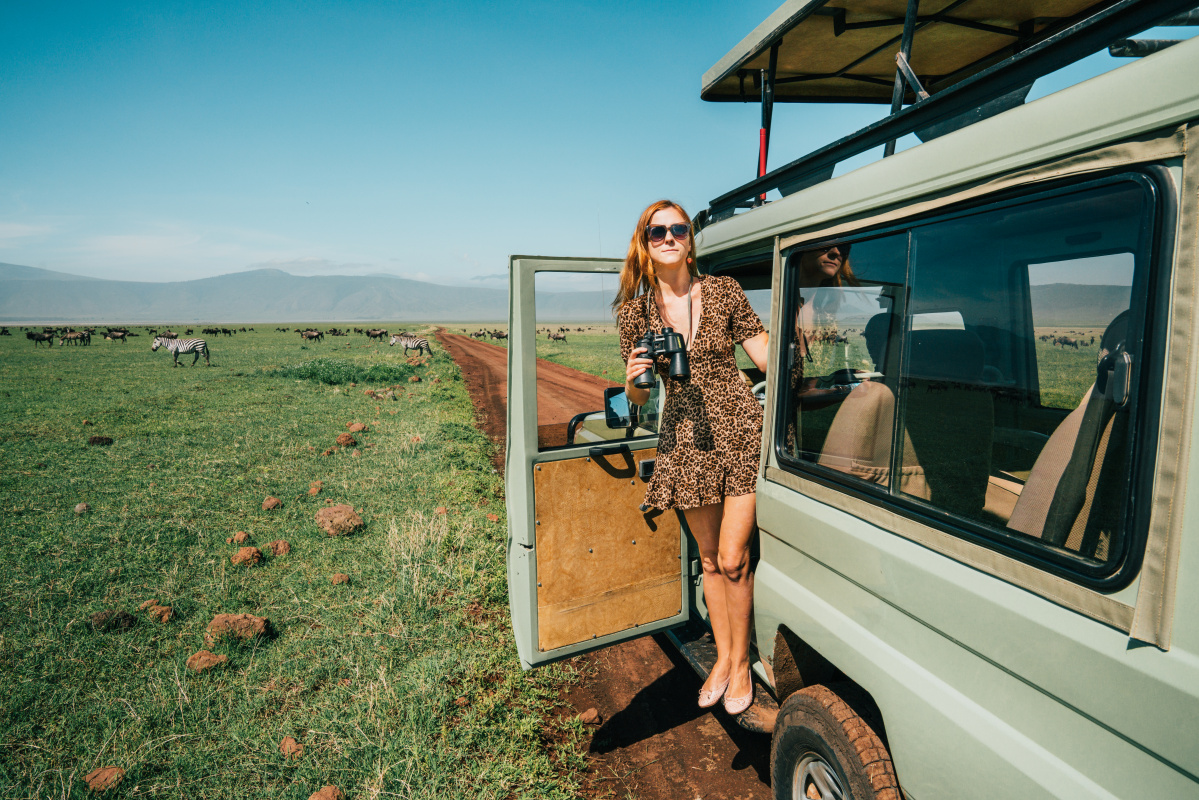
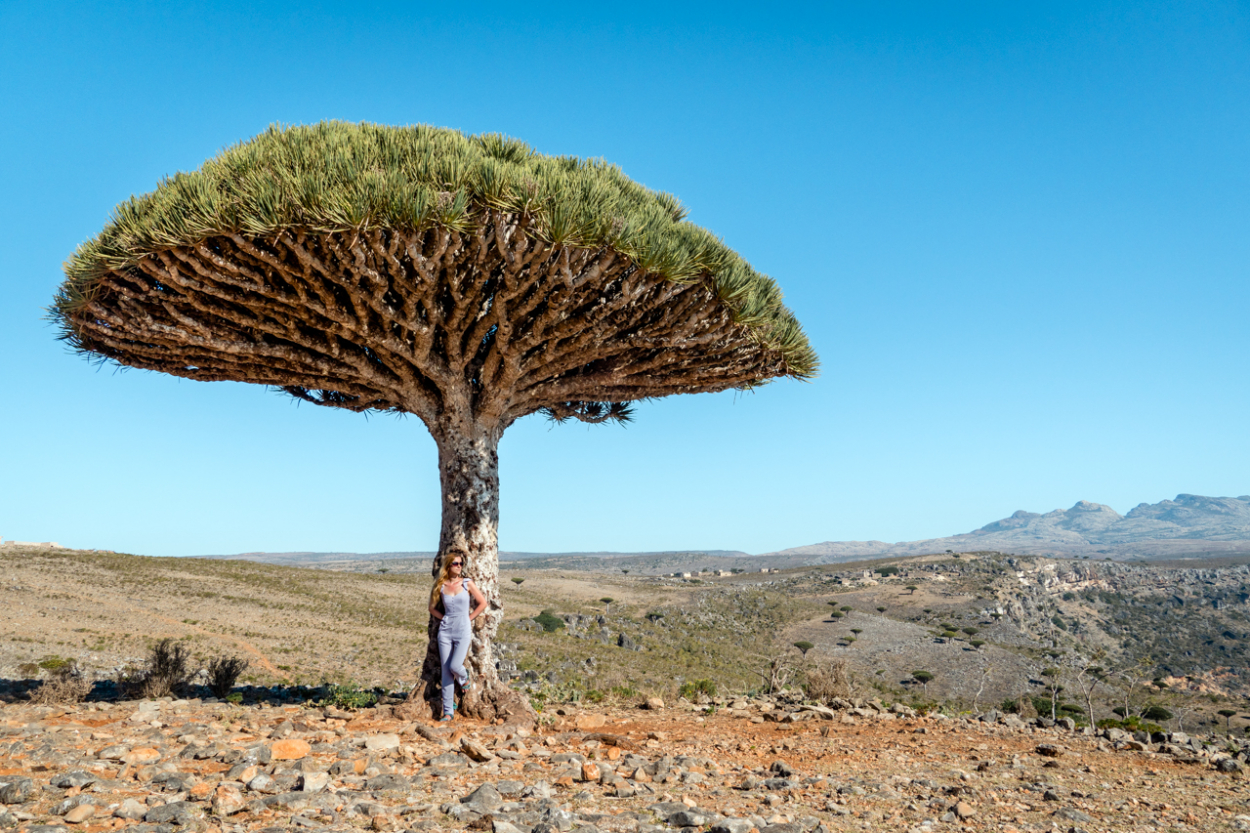




This crap has being going on since adam and eves days on earth
Every country exploits villagers or folk not street smart, i know i was one and so was my family and neighbors kids as we grew up in very remote part of north East galway, Ireland
After travelling 47 countries and 42 states in USA, i have seen a thing or two and realize what does not kill you, will make one stronger
My new though process is very simple
1) always treat people with respect + always treat assholes with disrespect, thus way you cut your losses upfront with evil and focus on the folks who are there for you, many people fail miserably here simply cuz of their upbringing and not street smart so they keep wasting time and energy on those whom are simply taking advantage of them
The old saying, cut your losses very early on in the scammers game, be sure and call them out on the BS making it very public, that way they too cut their losses on you on stalk their next prey
Gosh, your story about the walking guide has really made me think. Thanks for sharing your experience x
Excellent analysis in this post. The uncontrolled growth of mass tourism, the excessive share of tourism in local economies, the easy access (low cost flights, polluting cruises, igram, infosharing …) to the most remote spots of the world question me. I can no longer consider traveling as I was able to do it younger and that saddens me. I want to be a traveler before being a tourist. We must think and act as responsible people, and start by refusing the “ready to consume”, fast-tourism. Reinvent our way of approaching the world, the ‘slow travel’ as the movement Slow Food did in its field.
LOVE posts like these, Anna!
Anna, thank you so much for actually speaking out about this. I learned this a while ago and have since been finding more and more ways to keep my money in the locals’ hands. It’s so hard, which is upsetting! Even well-intentioned travelers, such as myself, find it difficult to fight this system and distinguish between local and foreign. It’s scary to show up to a new destination with no accommodations previously booked, but that seems like the only way since staying in guesthouses is one of the best ways to put money in locals’ pockets and most of them don’t advertise online. Thankfully there are other ways, like hiring local tour guides. As you described, even that is not so simple. Gah, why can’t helping be easier!?